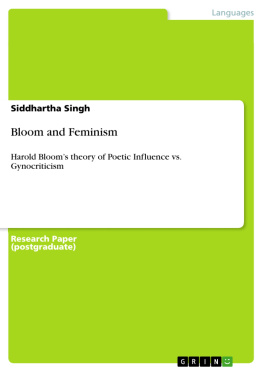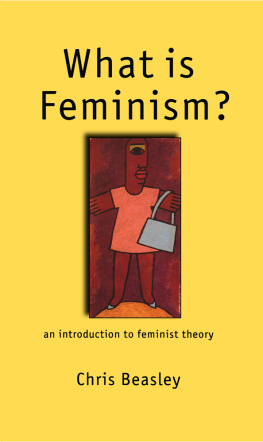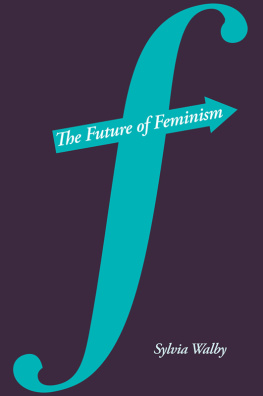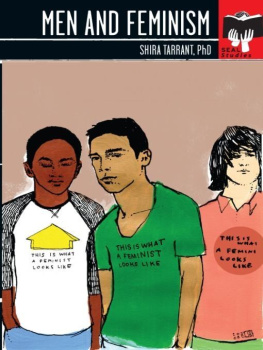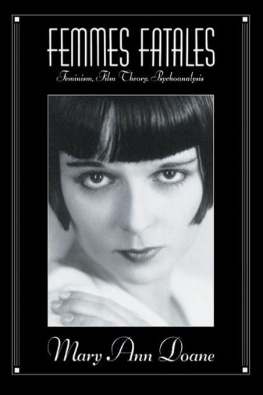ROUTLEDGE LIBRARY EDITIONS:
FEMINIST THEORY
NOSTALGIA AND SEXUAL
DIFFERENCE
NOSTALGIA AND SEXUAL
DIFFERENCE
The Resistance to Contemporary Feminism
JANICE DOANE & DEVON HODGES
Volume 23
First published in 1987
This edition first published in 2013
by Routledge
2 Park Square, Milton Park, Abingdon, Oxon, OX14 4RN
Simultaneously published in the USA and Canada
by Routledge
711 Third Avenue, New York, NY 10017
Routledge is an imprint of the Taylor & Francis Group, an informa business
1987 Methuen, Inc.
All rights reserved. No part of this book may be reprinted or reproduced or utilised in any form or by any electronic, mechanical, or other means, now known or hereafter invented, including photocopying and recording, or in any information storage or retrieval system, without permission in writing from the publishers.
Trademark notice: Product or corporate names may be trademarks or registered trademarks, and are used only for identification and explanation without intent to infringe.
British Library Cataloguing in Publication Data
A catalogue record for this book is available from the British Library
ISBN: 978-0-415-53401-7 (Set)
elSBN: 978-0-203-08796-1 (Set)
ISBN: 978-0-415-63518-9 (Volume 23)
elSBN: 978-0-203-09394-8 (Volume 23)
Publisher's Note
The publisher has gone to great lengths to ensure the quality of this reprint but points out that some imperfections in the original copies may be apparent.
Disclaimer
The publisher has made every effort to trace copyright holders and would welcome correspondence from those they have been unable to trace.
Nostalgia
and
Sexual
Difference
Methuen: New York and London
First published in 1987 by
Methuen, Inc.
29 West 35th Street, New York, New York 10001
Published in Great Britain by
Methuen & Co. Ltd.
11 New Fetter Lane, London EC4P 4EE
1987 Methuen, Inc.
Printed in the United States of America
All rights reserved. No part of this book may be reprinted or reproduced or utilized in any form or by any electronic, mechanical or other means, now known or hereafter invented, including photocopying and recording, or in any information storage or retrieval system, without permission in writing from the publishers.
Library of Congress Cataloging-in-Publication Data
Doane, Janice.
Nostalgia and sexual difference.
Bibliography: p.
Includes index.
1. American fiction20th centuryHistory and criticism. 2. Feminism and literatureUnited States.
3. American fictionMen authorsHistory and criticism.
4. Misogyny in literature. 5. Feminists in literature.
6. Women in literature. 7. Sex role in literature.
8. Nostalgia in literature. I. Hodges, Devon L.,
1950- . II. Title.
PS374.F45D6 1987 813 .5409352042 86-28564
ISBN 0-416-01531-X
ISBN 0-416-01541-7 (pbk.)
British Library Cataloguing in Publication Data
Doane, Janice
Nostalgia and sexual difference : the resistance to contemporary feminism. 1. FeminismUnited StatesHistory 20th century 2. Feminism and literature History20th Century I. Title II. Hodges, Devon L. 305.4 2 0973 HQ1154
ISBN 0-416-01531-X
ISBN 0-416-01541-7 Pbk
The authors wish to acknowledge Salmagundi and The Popular Press, in which portions of this book have previously appeared.
To the future: Cecily, Sara, and Tristan
Contents
Preface
O ur book aims to show how poststructuralist theory can empower feminists by providing them with a way to analyze the strategies of representation. Interpretive strategies informed by poststructuralist theory have made it possible for us to conceptualize and discuss a frightening antifeminist impulse; we call it nostalgic.
Nostalgia, as we define it, is a retreat to the past in the face of what a number of writersmost of them maleperceive to be the degeneracy of American culture brought about by the rise of feminist authority. Without reading male writers, we could not have gauged the resistance to feminism. And we would not have known how feminist arguments about women's difference have been appropriated by antifeminist writers. Our work has thus led us to enter the current debate among feminists about the articulation of sexual difference: we question recent efforts in feminist writing to establish a unitary identity for woman, woman's sphere, or woman's writing. At every turn, however, our work has been enriched by the very feminist authority that has so provoked nostalgic writers.
Our book is explicitly a collaborative effort. Not only is it coauthored but its existence has depended on the intelligence and support of many others. We are thankful to members of the Pembroke Seminar at Brown University, especially Joan Scott, Naomi Schor, and Elizabeth Weed for their friendship and critical acumen. We are also grateful to friends who read early drafts of the book: Steve Brown, Jan Cohn, Tania Modleski, and Bill Warner. The feminist literary theory group at St. Mary's College offered good advice about several chapters of the manuscript. In addition, two grantsJan's fellowship from the Pembroke Center (19834) and Devon's research stipend from George Mason University (1985)assisted our work.
We are also indebted to Ann Barr Snitow for her incisive comments about the manuscript. Her suggestions have made this a better book. For William Germano's generosity with both advice and support, we also owe a special debt of gratitude. Any errors that remain are, of course, our own responsibility.
While this book was being written, Tristan, Sara, and Cecily were born. Jim Mott and Eric Swanson assumed more than their share of the babysitting and so helped this book to completion. We greatly appreciate their practical and emotional support.
Introduction
N ostalgia: nostos: the return home. Nostalgia permeates American politics and mass culture. While pulpits and podiums resound with the message that we need to restore American values and the American family, movies and television return us to the happy days of yore. This book explores a particular aspect of the contemporary effort to redeem an idealized past. As feminists, we argue that nostalgic writers construct their visions of a golden past to authenticate woman's traditional place and to challenge the outspoken feminist criticisms of it. Nostalgia is not just a sentiment but also a rhetorical practice. In the imaginative past of nostalgic writers, men were men, women were women, and reality was real. To retrieve reality, an authentic language, and natural sexual identity, these writers fight the false, seductive images of a decadent culture that they believe are promoted by feminist writing. The battleground is representation itself: feminism is envisioned as a source of degenerate writing that threatens male authority. At issue are basic questions about the authority of women's writing and the power of male discourse to define reality.


